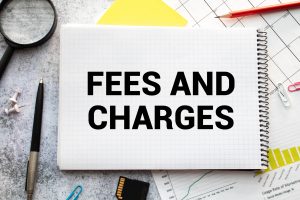Have you ever shopped for a concert ticket and discovered that the $50 ticket turned into $75 at check out? Have you ever faced unexpected, hefty fees when booking a hotel room, renting a car, or buying a plane ticket? These surprise fees appear in almost every consumer-facing industry, from credit reporting and banking services to cell phone and internet services, and President Biden is working with federal agencies to crack down on industries who deceptively impose them.
Junk fees increase the ultimate cost of everyday goods and services well beyond initial expectations. Businesses often wait to add them after the consumer has already committed to the transaction, obscuring the true price until it’s too late. Some businesses may even impose fees after the consumer has signed up for a service and started using it.
Research shows that junk fees disproportionately. These consumers are already targeted by predatory practices throughout the marketplace, and the excessive costs created by these junk fees only exacerbate the racial wealth gap. Excessive fees drain resources from people of color and may ultimately push them out of mainstream financial services and into fringe or predatory financial products. The price of certain junk fees (like auto purchase “add-on’s”) is also often disproportionately higher for Black and Latino customers, and the way that businesses hide junk fees makes it especially challenging for limited English proficient consumers to identify and avoid them.
Junk fees by their very nature diminish price transparency. Companies lure consumers in by advertising lower prices than deceptively add-on fees at the last minute, making it extremely difficult for consumers to meaningfully compare prices and effectively price shop. This has the inevitable effect of curbing competition – businesses do not have to be up-front about the fees they impose, and consumers pay higher prices as a result.
Last year, President Biden signed an executive order promoting competition in the marketplace, with the goals of lowering prices, increasing wages, and stimulating innovation. Last month, the President went a step further by announcing a government-wide “crack-down” on junk fees and proposing stronger consumer protections.
President Biden has called on federal agencies to reduce or eliminate hidden fees, charges, and add-ons. His administration defines junk fees as those “designed either to confuse or deceive consumers or to take advantage of lock-in or other forms of situational market power,” and categorizes them into the following groups:
- Mandatory fees that hide the full price of a product or service (such as service fees on concert tickets or hotel rooms, and “pay-to-pay fees,” imposed when consumers choose to pay by check)
- Surprise fees that consumers learn about after the purchase (such as airline “family seating fees,” statement fees, and surprise medical bills)
- Exploitative or predatory fees, where the fees far exceed the cost to the provider and/or the consumer has limited alternatives (such as bank overdraft fees, credit card late fees, inflated expedite fees, and “tips” for financial products and services)
- Fraudulent fees (where a provider misrepresents whether they will charge a fee)
CFA has consistently advocated for transparent and fair pricing and competition in the marketplace. Earlier this year, CFA joined coalition partners, National Consumer Law Center, Center for Responsible Lending, and Americans for Financial Reform in comments to the Consumer Financial Protection Bureau (CFPB) about junk fees in the financial marketplace. The CFPB received tens of thousands of comments in response to their request and has already taken many steps to constrain these fees in the financial marketplace.
Now, other federal agencies are following suit. The Federal Trade Commission has started its rulemaking process to rein in junk fees, and the Department of Transportation has proposed a rule requiring transparency in airline fees. Our Junk Fee Blog Series will look at each agency’s response to President Biden’s junk fee campaign, encouraging a thorough and expansive review of junk fee practices, and fighting to bring an end to these unfair and deceptive practices.
Tune in to our blog to learn about the continued effort to crack down on junk fees.


